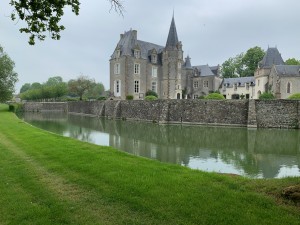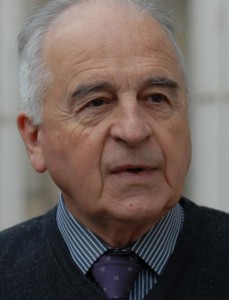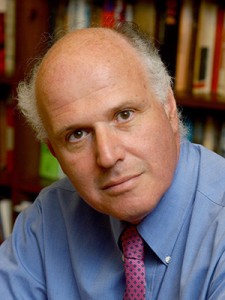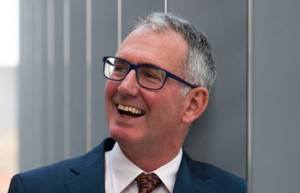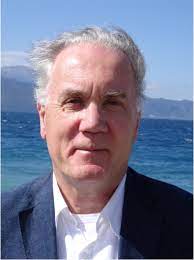In the Shadow of War: Europe and America 1914-2022
Antoine Prost, University of Paris
Jay Winter, Yale University
with John Horne, Trinity College, Dublin
and Julian Jackson, Queen Mary University, London
Cerisay, Normandy, and Paris
An EverScholar Residential Seminar in France
June 20 – July 3, 2022
This course is full; we are accepting waitlist registrations.
Imagine studying the decisive events of the last century with a depth you never knew existed. You are taught by an international “dream team” of decorated faculty, authors of the leading works in the field and renowned as its finest and most personable teachers. Now, transport yourself to an ancient chateau (today, a private residence) perfectly preserved and equipped with modern comforts even as its timeless character remains. You begin the program there, with you and the faculty in residence, hosted by the chateau’s gracious owner (and fellow EverScholar).
Following nearly a week in the French countryside, you move on to the great battlefield, the hallowed beaches, guided by these experts of the Normandy invasion. And then, you find yourself in the City of Light, where the epic defeat, the heroic resistance, the disgraced collaboration, the dark deportations, and ultimately the euphoric liberation all lived – and we study them all, deeply.
With you are like-minded friends old and new – your fellow scholars. All day, every day, you engage in seminar discussions, and journeys to cultural, historic, and artistic sites that enhance the immersion and the learning. Meanwhile, you enjoy fine accommodations, elite guides, and authentic and gourmet cuisine at the chateau or in fine restaurants.
The program actually begins months ahead with fantastic readings, curated by our faculty; sources you would never have approached or even known about.The reading is its own reward, even as it excites and prepares you for the EverScholar seminar discussions that await you in France.
You will return home with a new cohort of friends; freshly acquired expertise and insight; and a life-highlight set of memories.
This, then, is “In the Shadow of War: France and America, 1914-2022” an EverScholar program in Cerisay, Normandy, and Paris. Learn more below, and join us for this unforgettable experience.
Program Introduction
This program addresses issues arising from the history of war in the twentieth century. America and Europe came through the crucible of a century of war quite differently. Our seminar will begin by examining the nature and implications of this chasm of experience and legacy. The mind-numbing statistics of the 20th century are all too familiar: over 100 million dead, untold injured and displaced. More than half the humans ever harmed by war suffered this fate in the 20th century. Genocide, totalitarianism, dehumanization – the horrors are unspeakable. Still, not all societies were decimated in quite the same way, nor were they left with the same scars.
We examine the premise that in the twenty-first century, European society has been shaped by the prior century of war and its aftermath; that war is a particularly visceral part of European history and cultural life. A related hypothesis holds that this is not the case with respect to the United States. Instead, the United States – perhaps – bore the marks of two very different wars: the Civil War with its racial legacy, and the Vietnam war, with its legacy of defeat. American heroic narratives of the Second World War contrast, we believe, sharply with the bitterness of European narratives of resistance, collaboration, and genocide.
There can be no better place to conduct this exploration than France, in country and city. The suffering and losses of the two world wars are embedded in the landscape and in the space of family and local memory, as well as in national commemorative events.
This hypothesis is merely a point of departure. The seminar will broadly study what happened, why it happened, what was left behind, and why this all matters. We will examine military history, cultural history, and political history, taking many approaches to the study of war and of the memory of war. Through substantial readings of both the literature of war and the landscapes on which it is still engraved, we will engage in a fully comparative history.. We recognize that the formal definition of war as the starting and ending points of military conflict may be simplistic, omitting the shadow effect of war and combat on those who fought and those who live with the damage war causes; our study must therefore reach beyond the battlefield alone. There will be readings and visits to sites of cultural significance as well as to sites of combat and resistance.
See Professor Jay Winter on the streets of Paris with a brief discussion of this 2022 EverScholar program in France.
Our Faculty
Syllabus and Structure of the Course
We gather on Monday 20 June in Cerisay, roughly two and a half hours west of Charles de Gaulle airport. Our first working day is Tuesday 21 June. On that day, and on the following three days, we will focus on the Great War (World War I) and its repercussions for European and American society. On each day there will be multiple seminars, each led by one of the historians attending the seminar: Antoine Prost, John Horne and Jay Winter. We will explore local war memorials. There will also be visits to historical sites: Illiers, the birthplace of Marcel Proust, and the Cathedral of Chartres, as well as the most beautiful jewel of a chateau in the Loire Valley, Azay-le-Rideau.
On the fifth day, 25 June, we move to the Memorial in Caen, and hold a seminar to begin our discussion of the contrasting histories of the Second World War, before visiting the Normandy beaches. We stay on the Normandy coast, near where Marcel Proust lived and wrote ‘Remembrance of times past’.
On 26 June we visit two battlefield sites. The first is Omaha beach. The second is Pegasus Bridge. We then proceed to Paris (with a stop in Rouen), where we will hold the remainder of our seminars and site visits on the Second World War.
On 27 June – 1 July, we hold three seminars a day on the history of the Second World War, and visit sites in or around Paris, crucial to our study, including Fort Mt-Valérian, the Museum of the Liberation at Denfert-Rochereau, the incredible archives at La Contemporaine, the Drancy transit camp, and Père Lachaise cemetery. The seminars and site visits will be led by Antoine Prost, Julian Jackson and Jay Winter. Our seminar venue will be the Mémorial de la Shoah in the Marais.
On Saturday 2 July, we consider wars of decolonization in Vietnam and Algeria, and leave room for some general remarks as to the validity of the hypothesis we have examined over this ten-day seminar.
Attendees will take flights back home on Sunday 3 July – unless you decide to stay!
The course will incorporate daily visits to an incredible variety of important sites, closely coordinated with our seminar study and guided by our faculty and expert guides. Some site visits will go beyond guides and tours, with seminar discussion sessions conducted at the sites themselves. Detailed itineraries will be provided to all course registrants.
In the months preceding the course (February-June 2022), seminar participants are expected to complete the required reading in the syllabus (more details in “Readings” section below). Topics will be approached through the readings, and we will read and discuss specific passages / works of art / monuments in close detail. These readings will then be further clarified and complicated when we visit sites.
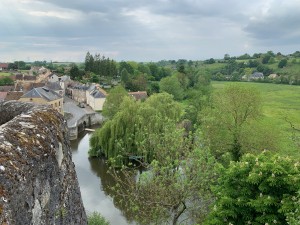

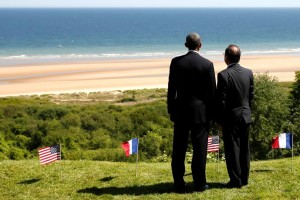
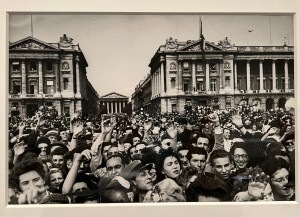
Readings
All EverScholar courses actually start months before our meeting. All books and other materials are included with the course. Upon registration, you will receive several preparatory books in short order; the course packet with scholarly articles and other materials curated by our faculty will follow soon after. Primary sources will mix with authoritative texts to produce night after night of joy as you prepare for your return to the life of the mind.
Special Events
One of EverScholar’s unique and most beloved features are our Special Events; sessions at a number of well-known (such as a museum or Art Gallery) or less-known centers of collection and learning. “In the Shadow of War” takes this to a new level; our morning seminars will be followed by an afternoon visit to some of the wide range of significant places described in the course brochure. We will have not only elite guides, but of course our peerless faculty will join us. Discussions will take place in and near these transcendent environments; the insight and memories can only be dreamed of now.
Evenings will also include cultural and other events that will enhance our study.
Our Learning Locations
Our seminar locations will be nothing short of breathtaking. The first week, classes will take place at Cerisay, a nine-century-old chateau, still a residence but perfectly suited to our learning experience. One of the buildings in the complex houses a unique seminar environment; the main chateau is ideal for lodging, dining, discussion, and contemplation. Located in the French countryside near numerous historic towns, like all of France the region bears the mark of the twentieth century of war. We plan a seminar on the grounds or within view of the gorgeous Loire chateau Azay-le-Rideau. In Normandy we will be hosted by the Memorial at Caen for our seminars, and in Paris the Memorial de la Shoah has offered its storied space for our study. We will also hold classes in sites including the Musee de la Liberation, Fort Mt-Valérien, and even in a fabled restaurant frequented by Molière, Balzac, and Voltaire.
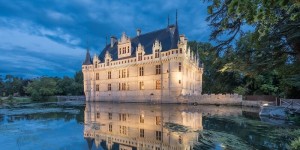
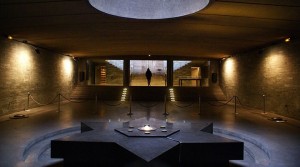
The course begins with a reception and dinner on Monday, June 21 after a bus ride from Paris to Cerisay…. and ends when we return from Paris on Sunday, July 3. We will stay at the Chateau de Cerisay, then luxury hotels in Normandy and Paris with the option for single or double rooms subject to availability.
The program cost is $12,750 per person double occupancy; there are ample double rooms, but the number of double rooms with twin beds is limited. Single supplements are available. Deposit is $2,000 per person. Balance is due on March 31, 2022. This EverScholar program includes all seminar sessions, housing, meals, readings, transportation (except airfare to France), and site visits. There are limited spots to bring a companion/guest; details and costs for this are described on registration page. Cancellation refund and COVID-19 refund policies are detailed on the registration page – so you can register without worries. We look forward to seeing you in France!
